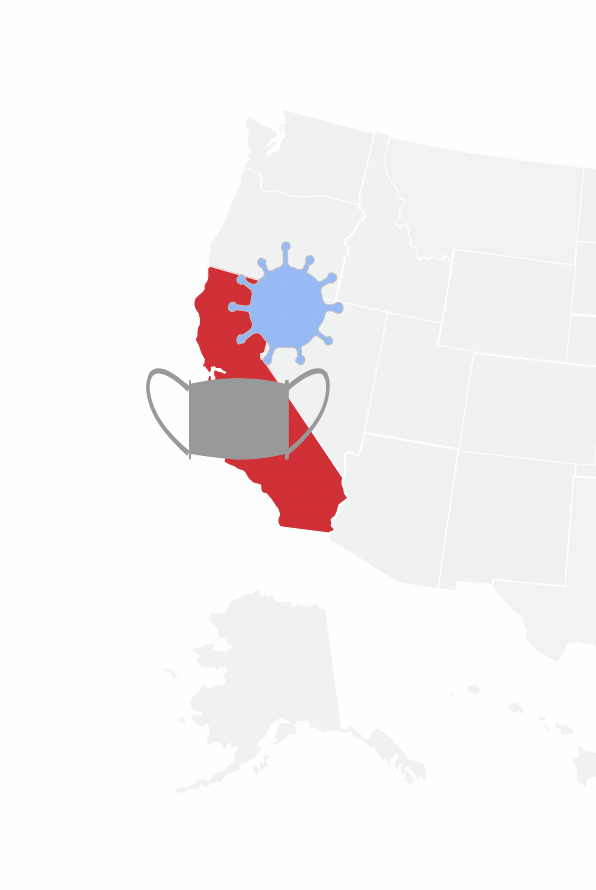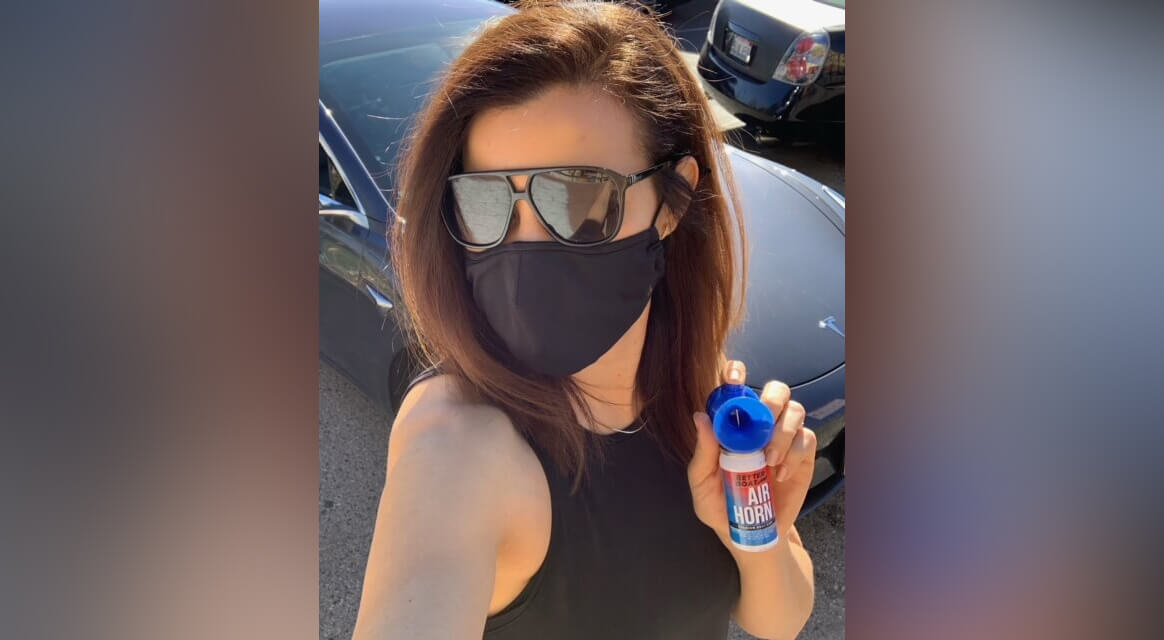
David Brown, ABC Legal Process Server in Walnut, California
David Brown lives in Walnut, California, and serves in two California cities—Diamond Bar and Rowland Heights. He was born and raised in Southern California, where he’s currently married with two kids, one out of college and the other just starting. Dave has been a process server in California for three years now so he’s familiar with the area he serves in and regulations in the state. With Prop 22 on the ballot in California having potential impact on process servers, we wanted to get Dave’s opinion on the proposed legislation and what it’s like to serve process in the Golden State.
What does a typical serve look like?
Dave: A typical serve for me is a residential home and sometimes a business. At times I’ll use the phone numbers provided, but it’s a bit of a gamble to call before your first attempt. I did once and they never answered the door. I’ll call the numbers if it is a bad address, or I am on my third attempt and nobody is answering the door.
Dave, what’s your opinion of Prop 22 legislation in California?
Dave: I think if prop 22 passes it will be good for ride-share and gig apps. It will provide some benefits along with keeping your flexibility.
Do you have indicators when it might be a more difficult serve and how does this change your process?
Dave: The biggest indicator for me is when I notice the age of the servee and if it’s young then I assume he or she is at home with his parents. Often when they answer they get protective and mistakenly sometimes assume the worst. I take an extra deep breath for these since it can get hostile very quickly.
How do you ensure your own safety as a routine practice?
Dave: You never know what can happen as a process server. First thing I do is always leave my car parked in a way it's easy to get out because you never know how fast you may have to leave. Second, when knocking on the door I stand at an angle so I can catch if anybody walks up behind me.
How are you managing during the pandemic?
Dave: I can't complain about my workload during the pandemic because I know a lot of people have it a whole lot worse, so I am thankful for the work I am getting and appreciate the protection equipment ABC is sending, very nice—thanks!
Can you tell our readers how you handle emergencies or natural disasters as a process server in California?
Dave: The only natural emergencies we have in my specific area are earthquakes, and we haven’t had a real big one lately. We do have fires, but they have not affected the areas I serve as of yet.
As technology plays more of a role, how has this impacted your job as a process server, such as the ABC Legal process server app?
Dave: Technology has helped quite a bit. Signing the proofs on the app is BIG! The app is very easy to navigate through and has a lot of info at our disposal.
How has the industry changed since you started?
Dave: I have only been a process server for about 3 years so technology has always been there for me, but I have seen some improvements that make our job a bit easier over that time.
What is the most important thing for someone just starting out as a process server to know?
Dave: I would say the most important thing for a starter to know is not to take a resident’s word for it when they say, “I don't know that person.” You will be lied to, so study your work order before going to the door and do your diligence—such as seeking out neighbors, license plates, package names at the door, signs such as “welcome to ____’s house” and phone numbers. Don't take anything personally. Just do your job.
What is your favorite part of the job? Least favorite?
Dave: My favorite part of the job as a process server is the flexibility. My least favorite part is California sub-serve rules which state we must serve after three attempts. It's frustrating because you can have a resident that resides with the servee and is perhaps willing to take the documents, but when you come back, they’ve either been talked out of it by the person you need to serve, or never answer again.
Hardest lesson learned?
Dave: That would be not reading my work order completely. I went to a home and asked for “John Doe” and he said yes and then I gave him the documents. When I got back to my car I realized I served the senior and it was for the junior. So I walked back eating crow and I explained it to him, and he gladly handed them back, and they never answered after further attempts. So—READ your work orders carefully!
Any tips for finding success as a process server as well as a few do’s and don’ts?
Dave: Be patient and don't bite off more than you can chew. The multiple attempts will catch up with you and eat your time up. You’ll realize that evenings and Saturday are the best day and times. Sometimes If I’m in the area, I may do an afternoon attempt just to get an attempt recorded on the app if I feel like it will take more than three attempts.
So tell us a story from a serve you went on...
Dave: I went on a serve once and asked for the defendant, and the woman who answered the door claimed she didn’t know that person. So I went next door, and the neighbor went into detail about how he does live there, the day and times he’s there, and that was actually the mother I had spoken with. I then noticed the mother was looking at me through the window as I was speaking to the neighbor. I decided to go back to the house with this information, and when I knocked on the door, the woman opened the door with her very large and very angry German Shepherd, which she could barely control. I promptly left and decided to come back another day. The documents were eventually delivered. Like I said, parents are the hardest and most unpredictable when trying to serve their kids.
Do you need a license in California as a process server, or other requirements?
Dave: In California, process servers need to be both licensed and bonded.
In Conclusion
What strikes me as I continue these interviews and meet process servers with ABC Legal from around the country is the one thing they all tell us—due diligence matters! It’s been mentioned by every process server thus far. While Prop 22 will have a likely impact on process servers in California very soon, we are awaiting news of this legislation and its potential impact on the process servers around the nation and will update accordingly.
If you find this news recap informative, sign up for our newsletter here so you can stay up to date on everything our blog offers, from legal industry news, interviews, insight and technology, to industry regulation and legislation updates.
About ABC Legal Services
ABC Legal is the nation’s leading service of process and court filing company and is the official process server to the U.S. Department of Justice. Docketly is a subsidiary of ABC Legal, providing appearance counsel on a digital, custom-built platform that smoothly integrates with our applications and services. ABC Legal’s applications are cloud-based and compatible for use on desktop, browser, and smartphones. Our solutions and digital approach ensure process server partners, law firm customers and their clients save valuable time and resources when serving legal notices safely and with maximum compliance, control, and transparency. ABC Legal is based in Seattle, WA, with more than 2,000 process servers throughout the U.S., as well as internationally in more than 75 countries. To learn more about ABC Legal, our solutions, and our subsidiary company Docketly, visit www.abclegal.com.

Written by
Heather ThomasService made simple—down the road and across the country. Join the 50,000+ professionals who trust ABC Legal for service of process.
Recent Posts
- 7 Ways ABC Legal Benefits Accounting Teams
- Streamline Civil Law Cases With Reliable Service of Process
- Insights from MTMP 2025: Legal Innovation, Connections & a Little Star Power
- Streamline IP Law Cases With Reliable Service of Process
- ABC Legal Issued US Patent Secure Service Recipient Online Portal











